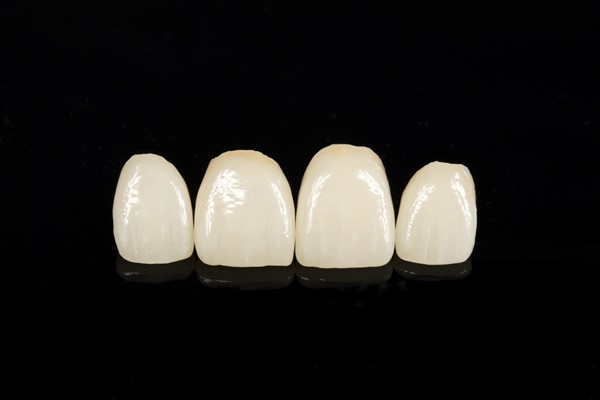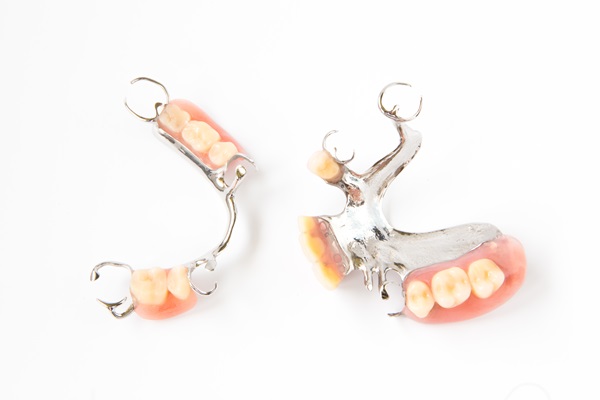Is There a Recovery Period After Getting Dental Crowns?

Patients considering dental crowns may have concerns regarding the recovery period following the procedure. Fortunately, the typical recovery period is relatively quick and involves minor inconvenience. Most risks and complications resulting from the procedure are comparable to those of most dental procedures and therefore require similar precautions.
The crown replacement process
The placement of dental crowns involves two stages, each requiring its own visit. During the first visit, the dentist will examine the roots and surrounding bone tissue of the tooth receiving the crown. After ensuring the abutment tooth is healthy, the dental professional will numb and reshape it to accommodate the crown. The dentist will then make an impression of the tooth using putty, paste, or a digital scanner and send that impression to a dental lab. Because the lab needs two to three weeks to create a permanent crown based on the impression, the dentist will place a temporary crown to cover the prepared tooth in the meantime.
The temporary crown
While wearing any temporarily placed dental crowns, patients have to take extra precautions not to break or accidentally remove them by doing the following:
- Chewing foods on the opposite side of the mouth from the crown
- Avoiding chewy or sticky foods
- Flossing gently around the treated area
- Not biting down on hard foods
While this period may be inconvenient, it is typically the hardest part of the treatment. After the permanent crown is placed, the recovery period usually takes a few days provided there are no complications.
The permanent crown
As with many dental procedures, it is recommended for patients to avoid hard foods or hot drinks until all sensation returns to avoid accidentally biting or burning their tongue. They must also avoid sticky food for 24 hours while the crown cements to the abutment tooth. During the first few days, patients may experience post-procedure inflammation or irritation that leads to increased sensitivity or pain. Usually any pain or sensitivity can be alleviated with topical analgesics, ibuprofen, or sensitivity-reducing toothpaste.
Possible complications
While most patients can resume normal eating habits a few days after treatment, certain complications can prolong the recovery period. For example, the crown may chip if it is made of porcelain. While the dentist can quickly fix chips with a composite resin in most cases, the crown may need replacement if excessive chipping occurs.
It is also possible for the crown to loosen if the cement washes out from underneath it. If this happens, bacteria can seep in and cause tooth decay to the underlying tooth, eventually causing the crown to fall off. Should any of the aforementioned problems occur, patients should contact their dentist immediately to make an appointment and to receive instructions on how to manage until treatment.
Conclusion
If you have healthy teeth and follow post-procedure recommendations after receiving dental crowns, the recovery period typically should not last long. The increased self-confidence and convenience you can gain with the treatment should last much longer.
Are you considering dental crowns in the San Dimas area? Get more information at https://sandimassedation.com.
Check out what others are saying about our dental services on Yelp: Dental Crowns and Dental Bridges in San Dimas, CA.
Recent Posts
Individuals suffering from damaged or unsightly teeth may benefit from receiving dental crowns. This straightforward and relatively common procedure can help restore the look and function of healthy, natural teeth. While a variety of components may be used to form dental crowns based on the patient's individual preferences and needs, the installation process is usually…
A dental crown is often the best option to repair the affected area when a patient is dealing with severe tooth damage or decay. Dental crowns can also protect weak or brittle teeth, improve the patient's appearance, and correct many other dental issues. For many people, this type of treatment helps to both restore and…
A dental crown can be used to treat a number of oral issues. Commonly known as caps, crowns are used to cover up damaged teeth completely, instantly restoring their look and function. The cosmetic and restorative properties of crowns are what makes them so popular with dentists. Nothing extends the life of a damaged tooth…
You have undergone a crown placement procedure, and you want your new restoration to last. Dental crowns typically last for 5-15 years, but you can increase the odds of keeping your restoration longer by caring for it properly. Caring for a crown is not difficult, and once you get into a routine, it will become…


